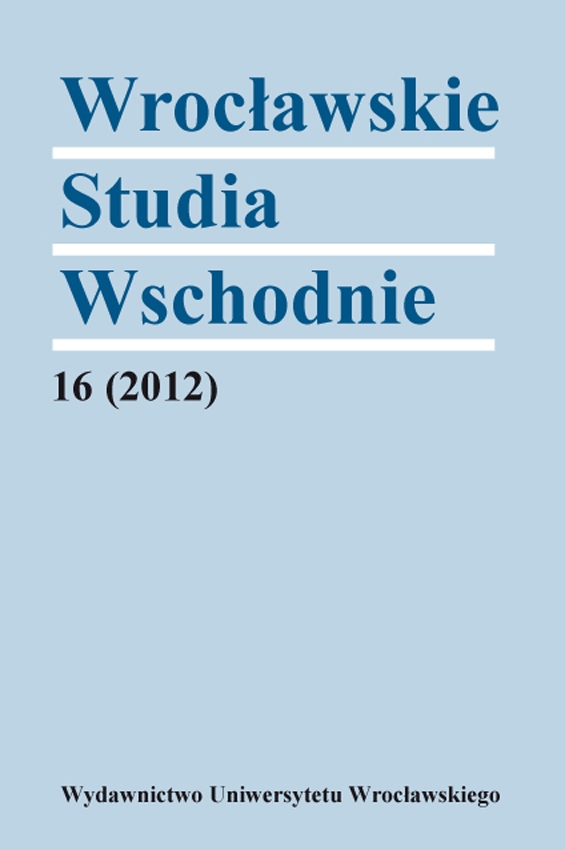

Artykuły

The complexities of a father’s love. The letters of Wacław Sieroszewski’s Yakutian daughter
The study is an attempt to provide a more detailed account of the complicated story of the daughter of the Polish exile Wacław Sieroszewski and his Yakutian wife Arina Chelba-Kysa. The reflection is based on Maria Sieroszewska’s unpublished letters sent to her father in Russian in the 1920s and 1930s, now kept in the National Library archives in Warsaw and in the private collection of the writer’s grandson, Andrzej Sieroszewski. The eponymous “com- plexities” of fatherly love concern the tragedy of both the parent and the child. The difficult decision to leave his teenage daughter, entrusting her to his friends and not taking her with him to his homeland, to which the writer was able to return from his Siberian exile in 1898, had a number of inevitable consequences. Seeing Sieroszewski’s behaviour as treason is too radical an attitude; instead, his conduct should be linked to a lack of choice — it can be explained both by personal factors political-legal considerations and personal factors unstable financial situation. An analysis of the surviving correspondence and Sieroszewski’s Memoirs shows that both felt the tragedy of not being together very acutely, although each probably in his or her own way. However, the fate of Maria, left behind in Russia, seems to be far more tragic than her father’s ethical dilemmas. On the one hand, we are dealing with an orphanhood complex, a sense of being rejected, the problem of dual ethnicity and rootlessness, a constant struggle with poverty and disease, finally the trauma of the Gulag; on the other — the problem of the father’s guilt, lack of a sufficiently strong emotional bond with his daughter, inability to establish a more profound contact, problems with bringing her to Poland for good, or failed attempts to integrate Maria with her Polish family.
The present analysis does not lead to unequivocal conclusions, but shows that the dramatic story of Maria Sieroszewska — half-Yakutian, half-Russian, but, in fact, Russian — still contains a number of puzzles yet to be solved, and, like the biography of her father, is open to further exploration.
Translated by Anna Kijak
Меандры отцовской любви. Вокруг писем якутской дочери Вацлава Серошевского
Статья представляет собой попытку представить сложную судьбу азиатской дочери ссыльного поляка Вацлава Серошевского и якутки Арины Челба-Киса. Основанием для размышлений являются неопубликованные русскоязычные письма Марии Серошевкой отцу из 20-х и 30-х годов XX века, хранящиеся в архиве Национальной библиотеки в Варшаве и в частных фондах внука писателя, Анджея Серошевкого. Заглавные «меандры отцовской любви» относятся к двусторонней трагедии: родителя и ребенка. Тяжелое решение покинуть насчитывающую десятка полтора лет дочь, поручить заботу о ней друзьям и не взять с собой на родину, на которую писатель мог вернуться из сибирской ссылки в 1898 г. — все это было связано с рядом неизбежных последствий. Восприятие поведения Серошевского как измены является слишком радикальным, скорее его следует связывать с отсутствием возможности другого выбора — оправдывают его факторы как общего политически-правовые причины, так и личного характера нестабильное бытовое положение. Из анализа сохранившейся переписки и Мемуаров автора Двенадцати лет в стране якутов следует, что дочь и отец сильно переживали трагедию разлуки, хотя, наверное, каждое из них по-разному. Судьба оставленной в России Маши кажется на много больше трагической, чем моральные дилеммы ее отца, так как с одной стороны, мы имеем дело с комплексом сиротства, чувством отвержения, проблемой двуэтничности и искоренения, непрерывной борьбой с убожеством и болезнями, наконец с равмой ГУЛАГ-а, с другой — с проблемой отцовской вины, отсутствием достаточной эмоциональной связи с дочерью, невозможностью установить более глубокие связи, проблемами с ее приездом в Польшу на постоянное жительство или же неуспешными попытками интеграции Маши в польскую семью.
Вышеуказанное не приводит к однозначным заключениям, но убеждает, что драматическая история Марии Серошевской — полуякутки, полупольки, а по сути россиянки, а также биография ее отца скрывают еще много u1090 ňайн, которые ждут раскрытия и новых комментариев, являясь открытыми для дальнейших дополнений.
Перевел Ежи Россеник